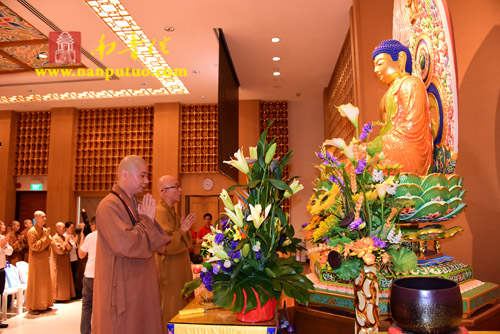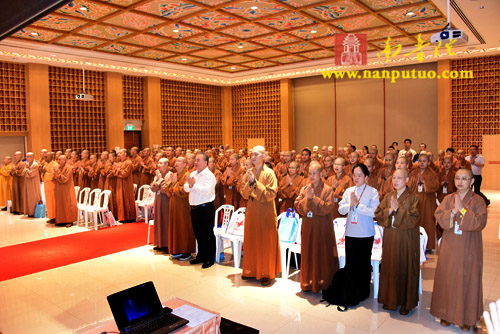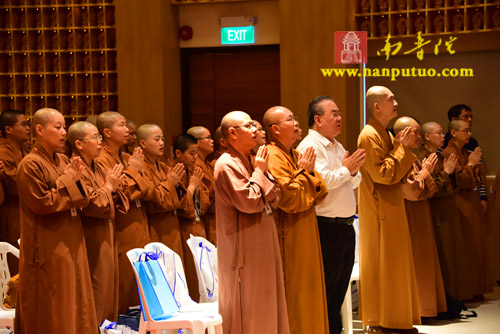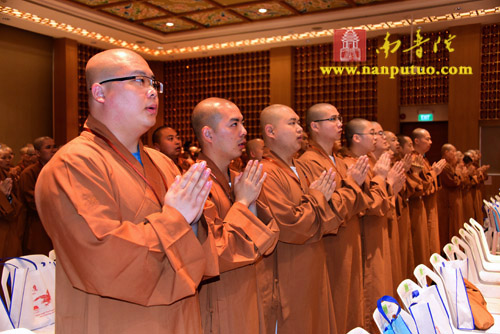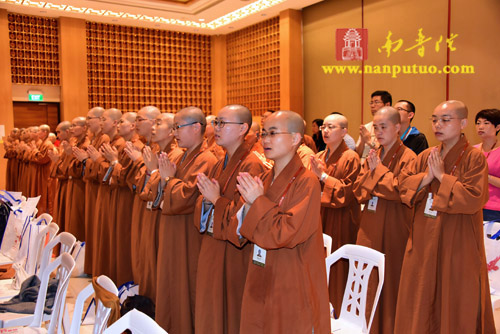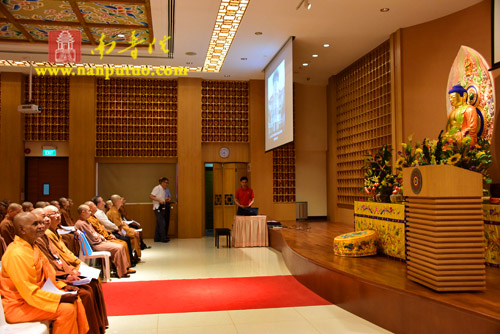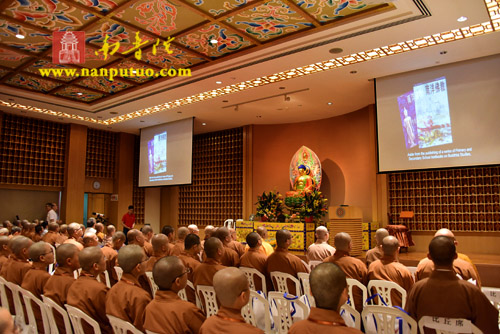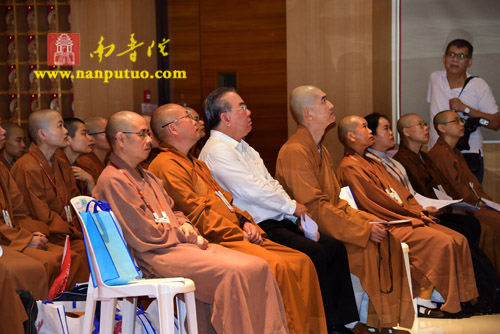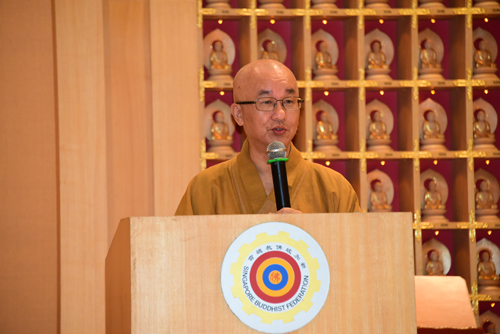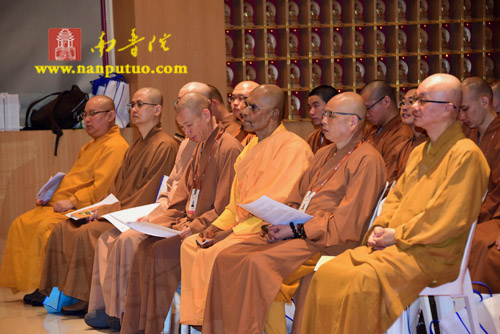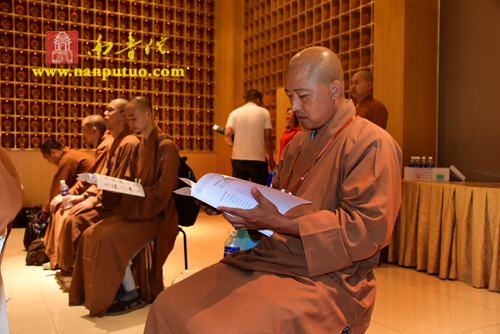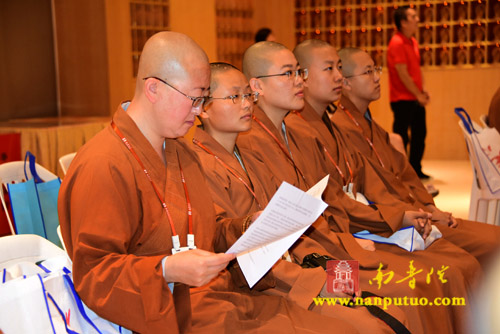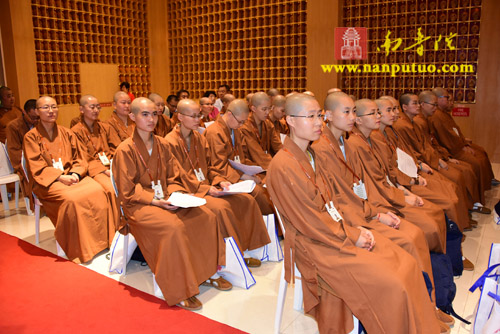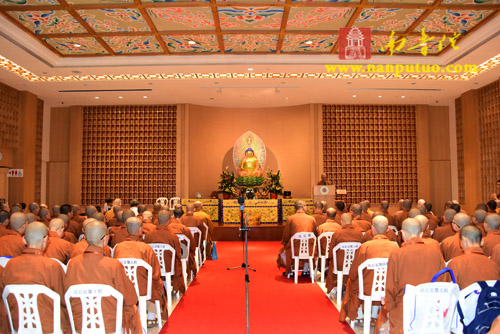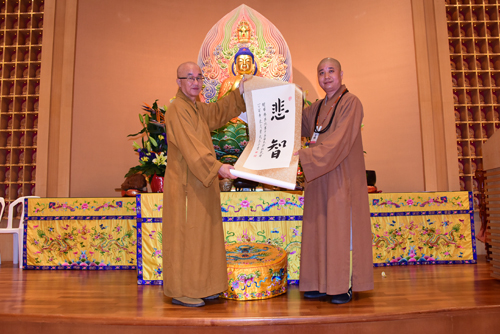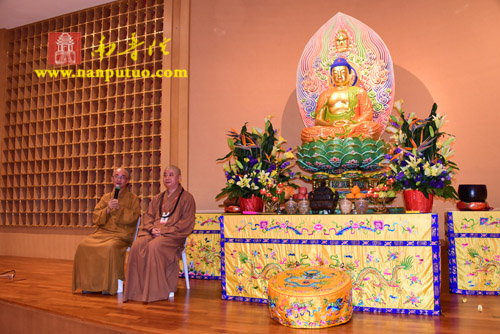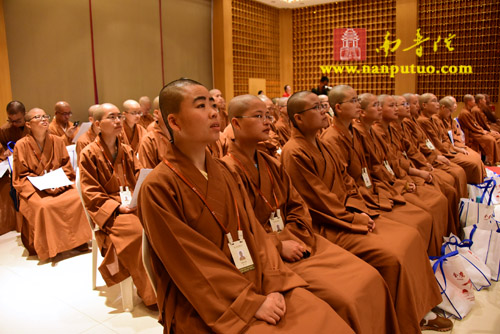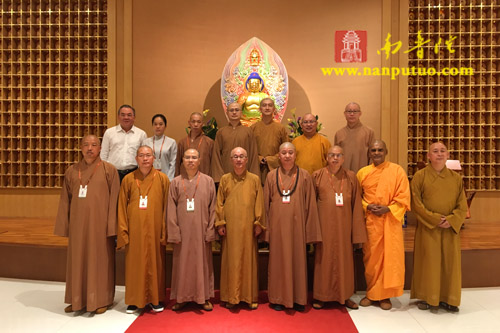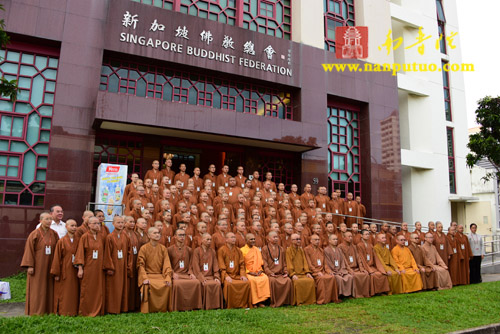At 8:30 a.m. on June 2, 2017, the Most Ven. Zewu who is the Vice-President of the Buddhist Association of China, the President of the Buddhist Association of Xiamen (BAXM), the Abbot of Nanputuo Monastery and the Rector of the Buddhist College of Minnan (BCM), led the Delegation of "Re-walking the Maritime Silk Road" which is made up of the 15th batch of graduates of the BCM and the BAXM with a total of 138 persons to visit the Singapore Buddhist Federation (SBF) and have a meeting. The President of SBF the Most Ven. Kwang Pin welcomed the delegation with abundant hospitality. Both sides had a discussion about the Sangha education, Buddhist historic origination of China-Singapore, and future cooperation and communication.
The Most Ven. Kwang Pin invited the Most Ven. Zewu to light the Buddhist incense in front of the Buddha image. Then all the participants stood up to sing the Song of Triple Gem. The meeting commenced with such a holy and grand atmosphere. During the meeting, a video about the SBF was showcased, which helped our students know more about the history, mission, and development of the SBF.
The Most Ven. Kwang Pin said in his welcoming speech, "the SBF and the Nanputuo Monastery as well as the BCM have a profound and historically important relationship. First of all, the Most Ven. Hongchuan is one of the founders of the SBF and he became the President of the SBF for a long time. He is the disciple of the Most Ven. Huiquan who was the former Abbot of the Nanputuo Monastery and the Rector of the BCM. In 1924, the Most Ven. Zhuanfeng (then the Abbot of the Nanputuo Monastery) led a reformation of the management system of the Nanputuo Monastery and then the Most Ven. Huiquan became the 1st Abbot under the new system. At that time, the Most Ven. Hongchuan followed the Most Ven. Huiquan to the Nanputuo Monastery, being his assistant. Later the Most Ven. Hongchuan followed the Most Ven. Huiquan again to Singapore. In addition, the song "Song of Triple Gem" was jointly composed by Ven. Master Taixu and Ven. Master Hongyi at Xiamen, which by now became the song of Singapore Buddhism. Moreover, our predecessors like the Most Ven. Huiquan, Ven. Master Taixu, Ven. Master Yanpei, Ven. Master Zhumo, Ven. Master Ruijin and other masters who have a profound relationship with the Nanputuo Monastery and the BCM exhibited great dedication to the development of local Buddhism."
The Most Ven. Kwang Pin also said that it was a great and far-sighted measure for the BCM to set up the international foreign language class for Buddhist students. He hoped that in the future Xiamen and Singapore could have more communication and cooperation on Buddhist affairs such as temple management and students exchange program.
The Most Ven. Zewu was invited to give a speech. He said, "Both the Most Ven. Huiquan and the Most Ven. Hongchuan are the family members of the Nanputuo Monastery. Both are great men in modern Buddhist history and had a contribution to the development of Buddhism in China and Singapore. The SBF, which was established by the Most Ven. Hongchuan, developed the Buddhism of Singapore especially the Buddhist friendship of Xiamen-Singapore."
He also said, "Buddhism should do something in the 'Belt and Road' strategy and the revival of the traditional Chinese culture. Buddhism should play active role in social harmony, political stability, purification of people's daily lives, and establishment of doctrine. It is our important duty to learn and inherit our predecessors' spirit and styles in this study tour. I hope through this tour, we could help develop the 'Belt and Road' construction, enhance the Buddhist friendship of Xiamen-Singapore, and inherit our predecessors' spirit and willingness."
At 9:30 a.m., the meeting was over. Both sides exchanged the gifts and took photos later.
